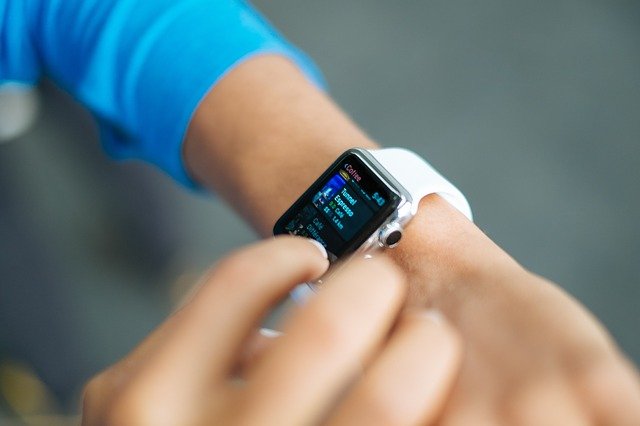For many people, smart wearables have become part of their daily lives. They are actively used for both personal and work-related purposes. The market for wearables devices is steadily growing and will exponentially grow in the coming years.
What is wearable technology?
As the name suggests, wearable technology refers to any type of electronic device designed for people to wear on the body. Jewelry, accessories, medical devices, and smart clothing are only a few examples of such devices available in many different forms.
Artificial intelligence (AI) hearing aids, Google Glass, Microsoft’s HoloLens, and a holographic computer as a virtual reality (VR) headset are among the most advanced examples of wearable technology. An example of a simplified form of wearable technology is a disposable skin patch with sensors that transfer patient data wirelessly to a control device in hospitals.
How does wearable technology work?
Wearables function differently depending on the categories such as health, fitness, or entertainment. Wearable technology works primarily by incorporating microprocessors, batteries, and internet connectivity so that the collected data can be synced with other electronics, including mobile devices and laptops.
Wearables are implanted with built-in sensors that keep track of bodily movements, provide biometric identification, and help track locations. At the same time, most wearables are either worn on the body or attached to clothing; some function without any physical contact with the user.
They include cell phones, smart tags, or computers that can still be carried around and track user movements. Other wearables use remote smart sensors and accelerometers to track trends and speed. In contrast, some of them use optical sensors for the measurement of heart rate or glucose levels. A common factor that binds these technology wearables is that they all monitor real-time data.
Applications of wearable technology
1. Sport and Fitness
Wearable gadgets have grown in popularity among people in sports, fitness, and healthy living. Furthermore, the coronavirus epidemic accelerated the growth of wearables in sports and fitness. People use them to track bodily indicators such as heart rate and the number of calories burnt and to control training regimens.
2. Health monitoring
Sensors are used in medical wearable technology to monitor, evaluate, store, and transport data such as blood sugar levels, oxygen saturation, heart rate, blood pressure, body temperature, sleep quality, and other important vitals.
3. Entertainment and gaming
The gaming and entertainment industry is always ahead in adapting to advanced technological developments, and most often, they can achieve their maximum potential. The first types of wearable technology in this industry were VR headsets, glasses, and controllers.
4. Traveling
People use smartwatches and AR glasses for navigating routes in cities and exploring local landmarks.
5. Education
Students can use wearable devices to listen to audio lessons, create voice notes, or receive notifications making such technologies beneficial to both parents and teachers.
6. Logistics and Transportation
Companies that operate in logistics and transportation
face many challenges and have to constantly solve problems associated with transportation of goods, accounting, information updates, and others.
7. Military
Wearable technology in the military includes devices that track soldiers’ vitals, VR-based simulation exercises, and sustainability technology like boot inserts that assess how well the soldiers are handling their equipment weight and how the terrain factors can affect their performance.
Conclusion
Wearable technologies are improving, and their popularity among people continues to increase. They provide excellent opportunities for device manufacturers, app developers, and companies operating in different industries.
